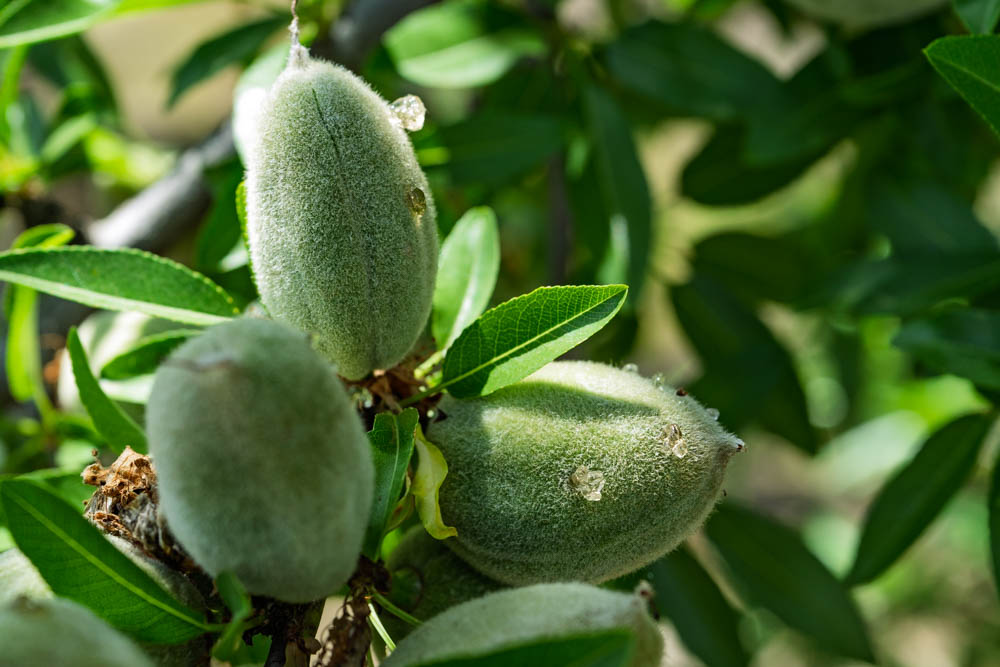If you’ve noticed almond hull gumming in April or May, chances are you’re dealing with leaf-footed bug damage. This early-season pest can quickly become a serious problem if left unchecked. However, don’t confuse it with stink bug damage—timing matters. Leaf-footed bugs typically strike in March and April, while stink bugs are more active from May to June. Knowing the difference is critical to effective pest management and protecting your yield.
What Kind of Damage Do Leaf-Footed Bugs Cause?
Leaf-footed bugs pierce almond nuts with their needle-like mouthparts, causing internal kernel damage. As a result, almonds often gum at the site of injury. If ignored, infestations can lead to:
- 25–40% kernel loss in heavily infested blocks
- Incomplete nut development
- Increased susceptibility to fungal infections
Spring is the critical window. Damage done during the early stages of nut development often leads to blanks or shriveled kernels.
When and How Should You Check for Them?
Timely crop scouting is key. Inspect your orchards:
- Weekly during March and April
- During warm mornings when bugs are most active
- On tree trunks and inner canopy, especially near orchard edges
Use a beat tray or sweep net to dislodge and count bugs. Even a small presence early in the season may justify action.
How Can Almond Growers Mitigate Leaf-Footed Bug Damage?
Integrated pest management is your best defense. Here are some recommendations:
- Remove nearby weedy hosts like thistle and mustard
- Prune orchard edges to reduce overwintering shelter
- Apply recommended insecticides when needed
According to a recent PCA report, the following were advised for almond orchards in Kings County:
- Roundhouse 1 EC (Lambda-Cyhalothrin) – 5.12 fl oz per acre
- Activator 90 – 4 fl oz per acre as an adjuvant
These insecticides should be used with proper PPE and drift control. Ensure full coverage and follow local regulations, especially during school hours.

How AgNote Can Help Almond Growers Stay Ahead
Managing permanent crops like almonds means keeping detailed records throughout the season. AgNote simplifies this process with:
- Dedicated permanent crop management tools
- Input and spray material tracking
- Expense recording and field history
- Crop planning for upcoming seasons
All of this is available through AgNote’s easy-to-use, cloud-based platform. Start your free 7-day trial today and take the guesswork out of your orchard management.
